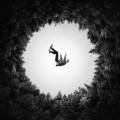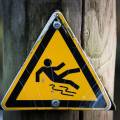Anger and OCD – Getting Mad…

Anger can be a mobilizing emotion, but too much anger directed at OCD can give it unnecessary power.
“I hate having OCD! Why can’t these thoughts just stop?!?! How can I be the person I was before?!?!”
Many people with OCD are extremely familiar with the anxiety-related aspects of the disorder. OCD is an anxiety disorder after all, so it’s not terribly surprising that anxiety is often core to its experience.
But anxiety is certainly not the only emotion that shows up in OCD. I’ve discussed briefly how some people with OCD have symptoms of guilt, shame, disgust, and depression, and how treatment may sometimes need to be modified when these emotions are primary aspects of the disorder.
Today, though, I’d like to comment briefly on anger and OCD, which I don’t think I’ve mentioned explicitly in previous posts. Anger can be a powerful force in many people’s OCD.
What’s the relationship between anger and OCD? Actually, the relationship between OCD and anger is complex, in that it’s mediated by obsessions, compulsions, or even reactions to developing the disorder.
Anger and OCD: Anger as a Trigger for Obsessions
Anger is sometimes entwined with anxiety and contributes directly to some types of Pure-O OCD. For example, anger can be a trigger for some people who have harm OCD (e.g., What if getting mad means that I’m capable of harming my family members?). Individuals with violent OCD obsessions may fear becoming angry, because they may fear that it will lead to them “snapping” or losing control.
Anger is also sometimes present for those who have OCD with suicide obsessions. For example, “If I feel that I hate my life or am angry with myself, that might mean that I’ll end my own life.” In this context, anger also signals danger and is linked to fear.
OCD and Anger: Examples of Anger Triggering OCD Obsessions
- I felt really mad at my parents, and then I almost felt like I wanted to hurt them. Does that mean I’m a dangerous person?
- I was arguing with my mom, and I felt an urge to punch her in the face, and I think I actually wanted to. What does that mean?
- I felt really mad and frustrated at my children, and I wanted to lash out at them. Does that mean that I could actually physically hurt them?
- I yelled at my kids, and I KNOW I enjoyed it. How messed up is that? Does that mean I really want to hurt them? Am I sadistic?
- My baby was crying and I couldn’t get it to stop. For a second, I felt like I wanted to throw my baby down the stairs. Does that mean that I’m capable of harming my baby? Does that mean that I ACTUALLY WANT to harm my baby?
- I screamed at my students today, and I think I felt a rush of enjoyment. What’s wrong with me?
- I got really mad at my dog today. He was taking too long to do his business, and I got frustrated and almost lost it. I wanted to yank his leash so hard. I really wanted to (and maybe I actually did).
Anger and OCD: Anger Linked to Compulsions/Rituals
Anger and self-hatred can also be associated with compulsive behaviors, such as compulsive self-harm behaviors. In such situations, self-harm may provide relief from anxiety and guilt. For example, if I’m worried that God is mad at me (or if I’m a bad person), then self-punishment may be (wrongly) rationalized as a good and proper thing. It may feel like the right thing to do. Response prevention in these cases (i.e., resisting self-harm or self-punitive behaviors) may initially result in intense guilt and anxiety. However, response prevention (and good CBT) can help remediate these cognitive distortions.
Every situation is different, which is why a comprehensive, function-based conceptualization of your symptoms is important. For OCD treatment to be effective, you must understand your obsessions thoroughly, as well as the functions that your compulsions serve. Understanding the functions of your Pure-O compulsions (i.e., mental rituals) is just as critical as knowing their forms.
Many Pure-O rituals related to anger involve analyzing the feeling to try to determine whether or not it’s dangerous.
OCD and Anger: Examples of Mental Rituals Related to OCD Anger
- If I get really mad, what does that mean about me as a person?
- Does feeling intense anger mean that I’m capable of hurting someone?
- What’s the difference between me and someone who actually would intentionally hurt other people?
- How can I know for sure that I’m not dangerous?
- What causes someone to finally snap and lose control?
- What makes me different from all those crazy people on TV who snap and hurt people?
Anger and OCD: Anger About Having OCD
One of the most prevalent (but often overlooked) manifestations of anger in OCD, though, is reactive anger. This anger is less primary to the disorder and is more of a secondary reaction to having OCD.
If you have OCD, you know this experience well.
“Why did I have to get this stupid disease?!?! I hate OCD!!! I’m so mad about having OCD!!!”
If you go back to its roots, the capacity to feel anger originated as an adaptive function. In other words, anger was designed to be a good thing. Anger is supposed to be a motivating emotion that serves as a catalyst for action and change.
Even in OCD, anger can be a healthy motivator — at least, at first. For example, “I’m so angry at OCD that I’m going to do everything in my power to stand up to it.” This can be a great motivator early in treatment.
Unfortunately, the positive, mobilizing aspects of anger can be temporary. When we stew in anger too long, it can have unintended negative side effects.
Too much anger directed at OCD gives it power. It labels OCD as the victor–the thing that stands in the way–blocking us from being who we want to be.
Too much anger directed at OCD results in “wishing away” compulsions. Comparing your current life to the life you “should’ve had” doesn’t help. It magnifies distress related to the current situation. Persistent, unmanaged anger makes you feel powerless against OCD and impedes acceptance of the situation you’re in.
This is also true for anger-related emotions like frustration and annoyance. Fan the flames of these emotions, and you may be giving up control to OCD.
I don’t expect you to not be angry about winning the OCD lottery. Nobody wants it. Nobody signed up for it. It just happened.
But I do want you to find a way to have OCD and be present in your life today, even if it’s not so easy. I do want you to find a way to choose to be you, under not so great circumstances, and to consider yourself heroic for making that choice. I want you to celebrate the best of yourself and be proud of yourself for embodying your values, even when it’s hard.
Choosing to live in this moment, and to work on accepting its imperfections, brings victory–even though it may not exactly feel that way at first.
I’ll leave you with a challenge today:
Find a small way to manage your anger in relation to your OCD. Use it, but don’t be held back by it.
Want Updates about New Content?
Follow Me!
Follow @drstevenseay












Thanks so much for posting this. I was wondering about anger and OCD because I had noticed that being angry at someone was a major trigger for me for what seemed to be OCD harm thoughts and accompanying anxiety. But since I just pretty recently learned that pure-o OCD is a thing (and was kind of like “Well, that could explain my life for the past 6 years) I wasn’t sure if anger being a trigger meant that I couldn’t actually have OCD and that I just actually wanted to hurt people – as you mentioned in the post.
I know this doesn’t exactly relate to the post but I’m wondering if you could possibly offer any advice about how to go about telling someone that you probably have OCD if 1) your life seems to be going pretty well, at least to other people (I guess some people would call that being high-functioning) and 2) you’re not sure that people will believe you because you’re not sure that you have symptoms now that match up exactly to those that are commonly experienced with OCD. I was diagnosed with GAD at age 12 six years ago, but since learning about OCD a few months ago it’s become abundantly clear to me that I actually had harm OCD (I got misdiagnosed, I think, mainly because I was extremely terrified of what would happen to me if I told anyone that I kept having graphic images of being violent towards family members pop into my head and was afraid they meant I was dangerous – the only thing I could say was that I just felt really, really worried). I never really felt comfortable with the diagnosis of GAD because I was never particularly worried about normal-life things that I was told people with GAD worried about.
But, I’ve never gotten to the point where I haven’t been able to function because of those thoughts. I’ve always done really well in school (in terms of grades at least – I do feel like I have constant concentration problems and I tend to spend way too much time doing schoolwork, though). My mom has also frequently said I’m a pretty calm person emotionally. Furthermore, the anxiety associated with the thoughts has diminished over time – the first three years or so pretty much felt like endless terror and me wishing I could turn into someone else, but after that, it wasn’t quite as bad, even though I still felt like I was constantly aware that I had had those thoughts and was always and forever going to be aware of that fact. Eventually I kind of had a period of time where I struggled majorly with suicidal thoughts (which I would characterize as feeling more like “I want to somehow not exist anymore” and not like “I actually want to physically end my life”, if you see the difference) and feeling really depressed, which somehow diminished to a more normal level or even went away, even though I never told anyone. I’m not sure how much or whether that was related to the OCD thoughts or whether it was something separate, but those kinds of thoughts or “everything is meaningless” feelings have continued to bother me off-and-on ever since.. Since learning what OCD was this summer, my anxiety about those thoughts (and guilt and shame also) went WAY down, and, for a while, the depression (or what seems to me to be depression) as well, which was great at first, but I’ve realized that I’m still always thinking about those thoughts or about possibly having OCD as in like “How do I even move past this now? I’m not sure I need ERP for the harm thoughts because they don’t really make me anxious or guilty anymore (at least not often) but I still feel like I just want to be able to talk with someone about my experiences because it’s all been so horrible and emotionally scarring”. This kind of relates back to your anger post in that I feel like I have a large amount of anger and depression (which could be self-directed anger) about this whole experience that, while I function reasonably well in my life in spite of them, are painful and energy-draining and extremely distracting to live with.
So I’m in kind of a dilemma because I’m not sure how much I actually need ERP so I don’t know if I should seek out an OCD specialist or tell someone that I definitely have OCD, but I also don’t want to go to a psychologist/therapist who doesn’t know about OCD to talk about other emotional problems because I feel like OCD underlies so many of the other problems I experience, even if that may not be my primary problem now (I don’t know if it is or not – I’m not sure how much of my own obsessional thinking I’ve actually been able to recognize). I’m also just not sure how much anyone would believe that I might have OCD or other problems due to the fact that nothing in my life would say that I’ve been struggling, except for my own inner experiences. I’ve avoided talking to anyone about it even since discovering that OCD existed because I couldn’t figure out what would be a safe way to bring it up, but I’ve been feeling increasingly like I really want to talk to someone because the feelings of being distracted or sad or angry or unmotivated to do anything have been getting worse (although they’re not constant, which is something that confuses me – they seem to come and go, and change rapidly, for no explainable reason). I’m afraid it might actually stop me from functioning decently one of these days, and I don’t want to get to that point.
Do you have any advice and/or does this sound like anyone else’s experience you’ve encountered before? I don’t know if what I’ve written was very coherent and I know the online world is not the ideal place for questions like this. But it was the easiest place for me at the moment.
OCD can be incredibly alienating. It’s completely normal to feel alone, lost, and confused with all of it. Whether or not someone decides to disclose to friends/family members that they have OCD is a personal choice. However, I’m a big fan of sharing this (with the right people). OCD — especially OCD characterized by bad thoughts — seems to fester if you’re left alone. It’s easier for the bully to bully you when there’s no one else around. Moreover, when OCD is given a name, when others in your life learn to recognize it as such, it can be incredibly freeing. You must, of course, be careful about how others’ knowledge of your OCD can lead to unhelpful reassurance. However, if you keep this in check, there can be so many positives that emerge when you break your silence.
Of course, it can be easier to share if the person you’re sharing with has some base knowledge about OCD. Maybe that’s through a book, a website, an article… The book Check Mates, which has poems/drawings/essays/etc. about OCD, can be an interesting way to break the ice. There are also some pretty amazing videos on youtube, including some of the selections from this year’s OCD Awareness Week (e.g., This Old Ghost). If the person you’re sharing with cares about you, the specific way you approach them won’t be so important — they know you, and they care about you, so they’ll listen.
RE: your question about ERP. Will it help? Maybe — but it may also be worth considering mindfulness, given that your specific thoughts are causing less anxiety now. Having a therapist to help you learn some of these techniques — or to help you work through your feelings about the journey you’ve been on — could be helpful.
You’ve come such a long way, but I think it’s safe to say that it can get even better.
Thanks for the advice. Yeah…I guess the specific way I approach people shouldn’t really matter, but I guess I’m just afraid of not being able to explain my experiences or getting misdiagnosed (again) and of clinical mismanagement. Because, first, I’ve read in other places that people with pure-o and violent obsessions and ocd that’s significantly driven by guilt/shame/depression are most at risk for that, and, for another thing, I guess I kind of lost my faith in psychologists just a little bit after the not-so-great experience of being twelve and being taken to one even though I was terrified of them finding out about my “bad thoughts”, and then basically having their response be “Oh so you worry too much? I guess we’ll give you an SSRI, ok?” And then having it barely help anything and, on top of that, feeling branded with something that didn’t even make sense to me because I rarely felt “worried about things” in the normal sense of those words, I was just inexplicably terrified of ridiculously far-out catastrophic events happening (like accidentally becoming a psychopath and murdering my parents). At least that’s how I remember it.
(Sidenote, I know you’re not really supposed to diagnose yourself but I honestly feel like I don’t know how I could not have ocd with all the ways I’ve been like “this explains my entire life” since accidentally stumbling on information about ocd online. Well, not quite accidentally – I stumbled upon it when I was lost in the psychology portal of Wikipedia trying to figure out what the bad thoughts were and whether I was possibly psychotic or a sociopath, which is something I’ve done a bit, well, obsessively, over the years so I don’t know why it took me almost seven years to run across this. I guess the internet is a big place.)
There’s also part of me that’s like “But what if I don’t have ocd? What if I’m just exaggerating to myself about how much the bad thoughts have bothered me and how much I think about them and about all the other things that I now think are probably obsessions? It’s not like I have to check things or do certain physical things when I have certain thoughts, even though I did when I was younger; people aren’t supposed to “lose” ocd behaviors spontaneously so the fact that I don’t have all the compulsions I can remember having when I was younger means it’s not really ocd.” I have this fear that if I talk to someone, they’ll be like “nope you don’t have ocd because you don’t fit all the requirements. You’re just unexplainably weird.” And then I still won’t have any explanation for my completely-unexplainable and kind of traumatic thought-life and I’ll just be stuck alone with it all forever.
But then I’m like “C’mon, who am I kidding? It’s obvious that I have ocd; I spent at least three years being terrified every night that I would sleepwalk and dream about murdering people (because I was thinking about that so much during the day anyway) and then murder my parents while I was sleepwalking, and a whole host of other violent thoughts and weird behaviors like having to shake my head every time I had a bad thought or constantly thinking about how someone knows that they love someone, and then I spent the next three or so years after that still being afraid of some of those things and wondering whether I would be stuck with these thoughts forever and wondering if my life would ever make any sense at all, and kind of wanting to not be alive but also being terrified of hurting myself and having recurring thoughts of doing so when I didn’t even feel sad (like suicide obsessions). Also, last year when I inexplicably developed doubt about whether I might be bisexual or asexual and now started randomly questioning whether I am actually attracted to guys I think I am attracted to, and the fact that I think about death like at least once every hour, which I kind of thought was maybe just normal until I read an article that was like “most people rarely ever think about death”, and the recurring doubts that I actually know what I believe about God and the feeling that I can never “figure out” anything philosophical, and, my habit of recurringly staring off into space and “thinking” (obsessing) about nothing and everything throughout the day (I can do this for hours at a time if I let myself, and I usually can’t stop myself from doing it completely). And the fact that if anyone asked me what I was thinking about at any given moment, it would most likely include one of these things. And what about that time when I was nine or ten and I refused to eat a lot of kinds of food for like a month because they made me feel like I was choking (sensorimotor ocd)? And those recurring fears I had when I was really small about someone taking my parents hostage and then telling me I could only have one back and forcing me to choose one over the other?”
And then when I’ve reviewed all that and a lot of other stuff too, I’ve pretty much convinced myself that people won’t tell me I don’t have ocd, but it’s still like this battle between voices in my head (not actual voices, just to be clear) that’s like “Just tell someone.” “DON’T!” “Just tell someone.” “DON’T!” “Just tell someone. At least it might help your rampant identity problems go away.” “DON’T TELL ANYONE. It wouldn’t make any sense anyway because you look fine, and you can also still function, you get A’s in school, so why bring it up?”
One other thing – is it possible to have what I would describe as “conscious reading” as a form of ocd? I’ve noticed that whenever I am reading, especially for school, I periodically start to notice that I am reading and start hyper-trying to understand everything and I notice the way my eyes are moving and the way the words look on the page and the way everything around the book or screen looks) and I start to notice specific words and then it’s like I literally can’t absorb anything that is on the page and I start to freak out a little and be like “I need to stop being distracted” and then I have to stare off into space for a while. It’s really distracting and time consuming.
Anyway, I wrote this and then realized I feel a little weird posting it considering that it’s ridiculously long and I’m not really sure what purpose most of it serves. But I want to anyway, even if it’s just venting because, well, I’m tired of having never talked about it. Thanks for your previous advice and if you can tell me anything about the reading thing, I would appreciate it.
Just a couple random thoughts: It sounds like the internal dialogue about whether or not a therapist would properly diagnose you with OCD is a bit OCD-ish. (Obsession: What if I don’t have OCD or what if I’m not dx’ed properly? | Compulsion – Reassuring myself that I do have OCD and examining the evidence for this, reassuring myself that the therapist will be able to see the truth). This sounds like a good opportunity (potentially) to embrace uncertainty both about the diagnosis, as well as the therapist’s ability to recognize it. It may feel uncomfortable, but trying to have certainty around these things is impossible. In the end, it can be helpful to take action despite the fact that you don’t know for sure how it will turn out.
RE: the reading issue, conscious reading can be a form of sensorimotor OCD – it’s an example of how hyperawareness/hyperperception of a process can interfere with that process and being “in the moment.” Secondary anxiety about the hyperawareness can further pull you out of the moment. The goal here is to be a bit less all-or-nothing and accept imperfections about your experience. Even if you aren’t absorbing everything, it’s important to not reinforce OCD by terminating the reading early or by starting to avoid reading. If anything, you need more practice doing it.
I can completely relate. I’ve never met a peer in real life who admits to having pure O (of course, I might know people who have it but not know they have it) but I can definitely relate to having obsessive thoughts but not really being able to identify them completely. And then worrying about “what if I don’t actually have OCD?” I’ve had thoughts like those too. Even if my obsessions themselves are different, the experience with another teenager really seemed to click. Just wanted to share that you’re not alone because I know at least for me it just makes me feel a bit better to know I’m not the only teenage girl with OCD out there. It’s rough.
The “What if I don’t really have OCD?” thought is a tactic that OCD tends to use in virtually 100% of people with intrusive thoughts. This is part and parcel of having Pure-O.
Very informative article! My son never displayed any outward signs of anger when he was dealing with severe OCD, so I assumed it wasn’t an issue. Now I see how anger was likely interwoven with his obsessions and compulsions. OCD sure does get complicated so thank you for shedding light on it once again!
Complexity is more the rule than the exception. 🙂
May I ask: is your son doing better with his OCD now? Is it greatly diminished (or not evident at all) or does he still struggle with it from time to time? I’m asking because I am wondering if it would be possible for my OCD to subside over time.
I won’t speak for Janet, but I will say that OCD can absolutely get better with the right approach.
I’m scared that if I admit to having aggressive obsessions that my children will be taken away from me! I never would hurt them, if I ever get these thoughts I immediately leave the room and stay away until I feel like it’s safe. I want help but I don’t want to lose my children. what should I do?
I’m feeling very disturbed by the things I’m reading about harm ocd. I want to clarify that I’ve never had homicidal thoughts…but…I do have borderline personality disorder with a history of violent behavior (not on purpose, or fun, but when I became EXTREMELY angry). I read a lot about rumination in harm ocd, and many will think about their life in the past, looking for things that could be a clue to whether or not they have harm ocd. My problem is that my past has been riddled with physical fights and aggressiveness. So it doesn’t help to reassure me that what I’m experiencing is harm ocd.
Basically, this started 8 months ago. I had a SERIOUS break down, and just felt insane. It was then that I started to think about my past actions that the harm thoughts started. I felt really upset about the things I had done, and therefore found out I had BPD. I kept getting thoughts in my head, well if I did that than I’m capable of other things. It was more about suicidal thoughts first, I felt like I wanted to die…I couldn’t function and my anxiety was so bad I felt like I was screaming inside my body. I went to the hospital and told them…and the harm thoughts started soon after. I always told myself, no…that’s not me! And then it really got set off one day when my husband and I had been arguing horribly all day long. We were putting furniture together, and at one point, I had a screw driver in my hand, and I was still so angry, that I had a thought about stabbing him with it. Keep in mind my husband was across the room while I was sitting on the floor. So I raised it up and suddenly freaked out! I was shocked. I would have never done it but the fact that I was angry, had a violent thought and even started to act, just shocked me. I quickly put the screw driver down, and ran to another room. I didn’t cry…I just felt scared and very unsure of myself. After that scenario is when it got so bad that I became so depressed, depersonalized, etc that I couldn’t even get out of bed some days. I would just cry every other day…and I felt this need to confess every bad thing I did, and the horrible thoughts I was having. So I did tell my husband everything. I’ve even told my mother and some of my friends. And I tend to feel better after. There is another disturbing thing where there are times I’ll feel the urge so bad to hurt our cats, that I’ve actually grabbed a pen or knitting needle and tested myself to see if I could do it. Sometimes I would just touch the objects to them, and then actually try to do it…but I never could follow through with it, and I would feel guilty and anger for even testing myself. But then I would feel relief that I didn’t. There have been two times that I took all of the knives out of the kitchen, only leaving one (which I put away after I’m done) and put them outside, locked up in our garden shed. I’ve also tried to unplug the stove, and I constantly check the stove when I’m cooking to make sure I didn’t put my cats in there. I always cut our food before bringing it out, too. I just can’t have a knife around my husband, and I even get angry with him when he won’t leave the kitchen while I’m cooking. It’s like everything could be a weapon, sometimes I think about even my fork being a weapon. I’m absolutely terrified that I’ll be pumped with medication, which has been shown to cause real homicidal ideation, and go into psychosis and kill people. I can’t look at anyone…and it’s hard for me to go outside. I hate myself. I’ve even gotten into the habit of checking the stove and back door at night. If I don’t do it, I feel pissed because I just can’t stop the impulse to check, when I know nothing is wrong. Also, when this all started, I kept telling myself that I would commit myself, but what held me back was the fear of being given medication that would make my anxiety stop, and somehow I thought in my head that if my anxiety stops, there will be no barrier to stop me from acting out. Or that I’ll go psychotic. I’ve told myself, that when I see my psychologist, that if he feels the need to refer me to a psychiatrist for medication, that I will beg to be committed while taking these medications…for fear that they could cause me to commit murder. I also relentless check the internet for people like me, and I take tests, and I can’t even watch shows like CSI. Today I watched a movie about DID, and during the violent moments, I would cover my ears and close my eyes until they were done. I keep reading that harm ocd people don’t have a violent past but I have come across posts from borderline’s, bipolar’s, and even high functioning psychopaths, with violent pasts, who had harm ocd. I have had some moments, even after this started, when I acted aggressively. I smacked my husband in the face one day when he was yelling in the car, and I instantly felt guilt. And there have been a few occasions where I did smack one of my cats (she was aggressive even before we adopted her) when she bit me…and I instantly hated myself. Yes, I have a severe anger problem and I will be getting help for it and I will be truthful to my psychologist about everything…but I don’t want to kill anyone! And even if I wanted to, I would want to be dead!! I just want my old life back, without the past anger issues and borderline tendencies. I want to feel close with my husband again and I want to be around my cats without being scared to touch. I want to be able to do normal things without thinking there is some kind of evil motive behind it, even just normal things like brushing my teeth.
I’m just wondering if the severe depression I feel, borderline, anxiety, and possible ocd may make my case a bit different from your normal pure-o patients. So…can I get your opinion, please?
A good way to talk about it might be to try using an article that describes what this is…that way was easier for me. It takes away the task of having to try to figure out how to phrase what you want to say yourself, which can be scary in this situation.
Good luck.
Hello Dr. Seay and everyone! I am diagnosed with odd. I take medicine therapy and see a psychologue! My main thoughts are about the past. What if I have done something bad to my dad on purpose? The thought is that some years ago, when I found a piece of broken glass in the dishes machine, I put it on my dads food and then regretted about my action. Are there any people that think they have caused harm in the past intentionally? I usually read about fear to act on their thoughts and not what if acted already on their thoughts. Thank you for reading my post. I really suffer….
Very good and helpful article,
I traced my ocd back to my father’s drinking and having anxiety associated with his drinking scaring me, love hate relationship, when I get angry it triggers my ocd harming obsessions, because the person I am angry with I want them to act and behave in a certain way I think sitting with feelings is good but if you can remove yourself from the situation like take a walk to get some exercise and clear your mind I think it might help looking at the situation
also can help is the other person in a bad mood irritable snappy dealing with their own problems, sometimes moving on or removing yourself from the situation is the best option because the other person most likely wont change.
hello
when i get angry it triggers my harming obsessions so i developed avoidance behavior
to avoid the person I am upset with but then there are times when I am next to a person I love and care about and might have a harming intrusive thought towards them which triggers the anger because I didnt want to have that harming thought it is a vicious cycle.